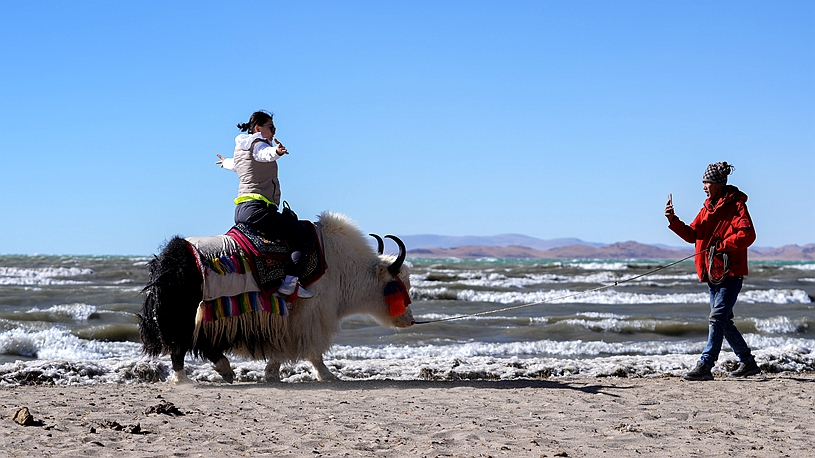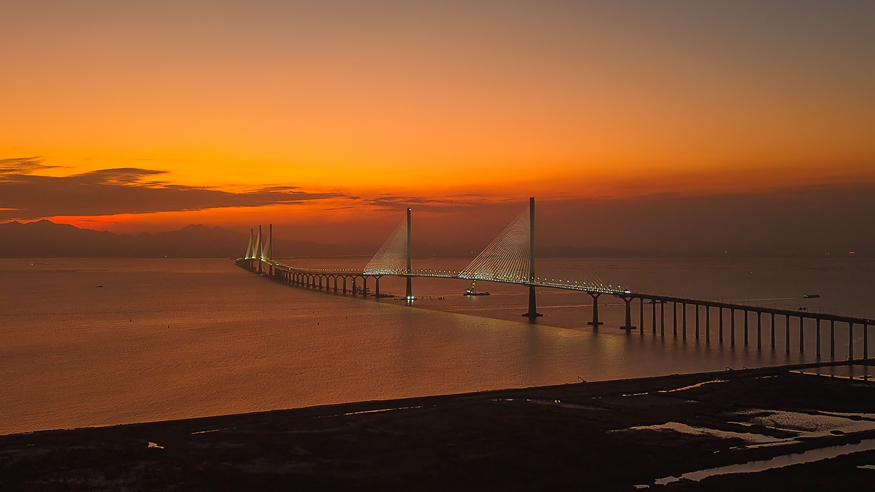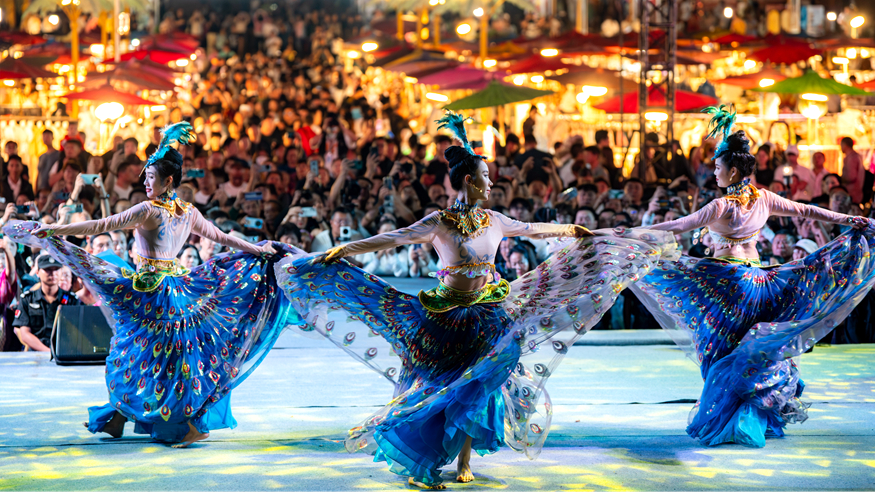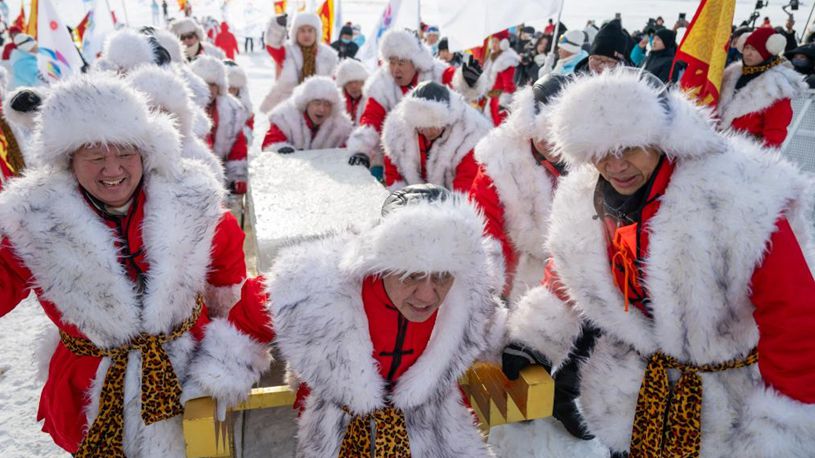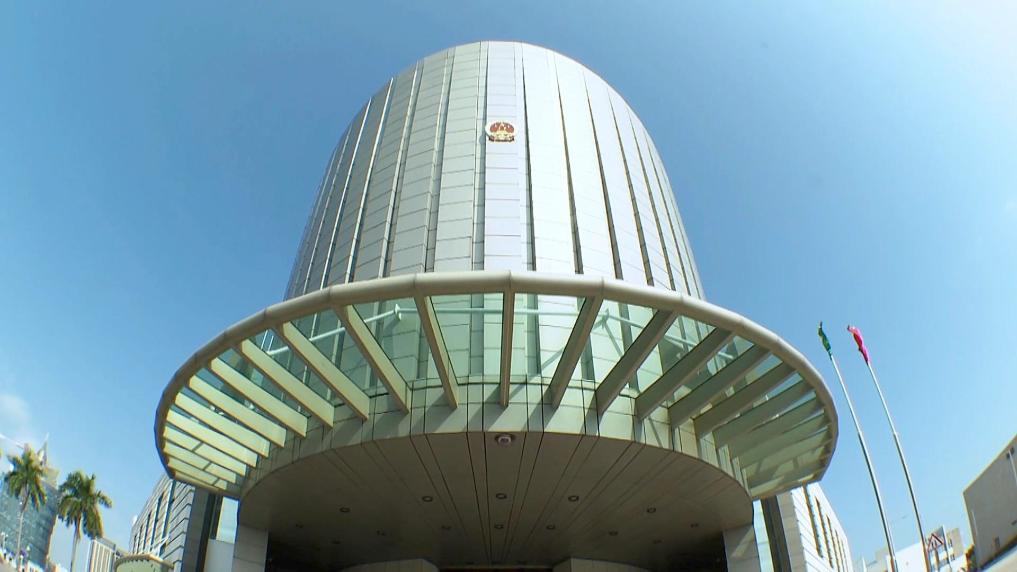NANJING, Dec. 13 (Xinhua) -- In a solemn display of remembrance, the people of Nanjing observed a moment of silence as sirens resonated throughout the city on Friday, marking China's national memorial ceremony to mourn the 300,000 victims of the Nanjing Massacre.
Despite the winter chill, thousands of people clad in dark attire gathered in Nanjing, east China's Jiangsu Province, with white flowers pinned to their chests, to partake in the ceremony.
China's national flag was flown at half-mast in front of the crowd that included survivors of the massacre, local students and international friends.
At 10:01 a.m., sirens began to blare. Drivers in the downtown area stopped their vehicles, honking in unison, while pedestrians paused to observe a moment of silence in memory of the victims.
Over 80 young people recited a declaration of peace, and citizen representatives struck the Bell of Peace. In a poignant symbol of hope, white doves were released, soaring over the square of the Memorial Hall of the Victims of the Nanjing Massacre by Japanese Invaders.
Li Shulei, a member of the Political Bureau of the CPC Central Committee and head of the Publicity Department of the CPC Central Committee, attended the memorial ceremony and delivered a speech.
He said the memorial ceremony expressed the Chinese people's noble desire to steadfastly pursue peaceful development and demonstrated their firm stance on remembering history, cherishing peace and forging ahead for a brighter future.
The Nanjing Massacre took place when Japanese troops captured the then-Chinese capital on Dec. 13, 1937. Over the course of six weeks, they proceeded to kill approximately 300,000 Chinese civilians and unarmed soldiers in one of the most barbaric episodes of World War II.
During the atrocity, then-three-year-old Liu Minsheng lost his father and was stabbed in the leg by a Japanese soldier. The scar remains as a permanent reminder to this day.
"I hope future generations will always remember this history and cherish the peaceful life we enjoy today," said Liu, now 90 years old, at the ceremony.
A decade ago, China's top legislature designated Dec. 13 as the national memorial day for the victims of the atrocities.
Since last year's national memorial day, six survivors of the massacre have passed away, leaving only 32 registered survivors still alive today.
"There are fewer and fewer survivors who can tell the story," said Chang Xiaomei, who was granted the official status of inheritor of historical memories of the Nanjing Massacre in 2022.
Her father Chang Zhiqiang, a Nanjing massacre witness, passed away in December 2022. Chang Xiaomei began documenting the elder Chang's life in 2017 to share the impact the atrocity had had on him. Three years later, she published a book that was later translated into Japanese and English.
The Chinese government has preserved the testimonies of these survivors through written documents and video recordings. In 2015, these records were inscribed on UNESCO's Memory of the World Register, ensuring that this harrowing chapter of history is remembered by future generations.
"We must help generations of people to remember that period of history, remember our suffering and inspire us to move forward on the road ahead," Chang told Xinhua.
Similar commemorations were also held elsewhere across China.
At the 9.18 Historical Museum in Shenyang, capital of northeast China's Liaoning Province, participants held candles as they remembered the victims.
Japan invaded northeast China in September 1931, followed by a full-scale invasion that started on July 7, 1937. Around 35 million Chinese soldiers and civilians were killed or injured during the Japanese occupation, which continued until 1945.
At the Shanghai Songhu Memorial Hall for the War of Resistance Against Japanese Aggression, people laid wreaths for the martyrs and victims in the war.
"We are remembering the past so as to stay away from the war," said Wang Yufeng, deputy director of the memorial hall.
"It is important to remember history. Otherwise, it will keep repeating, as we have seen and still see today," said Chris Magee, the grandson of John Magee, an American missionary who covertly recorded 105 minutes of footage documenting the barbarity of Japanese invaders in Nanjing. This footage is thought to be the only film record of the massacre.
Explaining why it remains crucial to remember a massacre that occurred more than 80 years ago, Marcin Tomasz Damek, a Polish student studying Chinese history in Nanjing, said, "For communities, it's a way to heal trauma. For historians, it's about knowing better the past. For educators, it's an essential lesson to prevent the recurrence of such tragedies." ■

